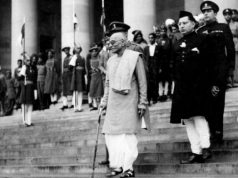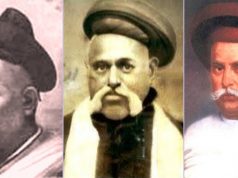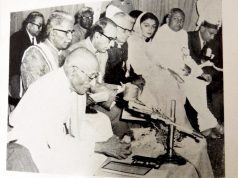This is the final part of a 4-part series, each post containing an excerpt of Minoo Masani’s 1944 essay ‘Socialism Reconsidered.’ Here are the links to the earlier posts in the series–
- Minoo Masani | Socialism Reconsidered (1944)
- Minoo Masani | The Assumptions of Marxism (1944)
- Minoo Masani | Who Owns the State? (1944)
****
The Transition
How is the transition from the present position to a socialist society to be achieved? The nature of the changes brought about by non-violent mass action aiming at the establishment of an economic system an appreciable part of which is made up of small-scale units of production must of necessity be different from those which are envisaged by orthodox socialist theory. One of these points of difference is in the attitude towards the ownership of property, which is the social relationship in that relationship. We have seen earlier that what matters most today is not ownership so much as control of the instruments of production and that one can have, as in Russia, a totally nationalised economy without achieving a classless society. The formula that Gandhiji has put before us, as against the expropriation of all private property, is what is known as the conception of ‘trusteeship’ of the owners of property in the interest of the community, to be brought about by moral persuasion plus State pressure. The maximum income permitted to such ‘trustees’ would not exceed twelve times the prevailing minimum.
A lot of scorn has been poured on this optimism which can envisage a change of heart on the part of the propertied class. I confess I have not been innocent in the past of adding my little share to it. After the awful mess that world capitalism has made, the idea of thinking of the capitalist as a ‘trustee’ does rather jar on one. Nor would there be any ground for hope if the capitalist were left a free agent under a system of laissez faire, with unfettered discretion and power to do as he pleased. But that is precisely what the capitalist ‘trustee’ of Gandhiji’s would not be free to do.
That is not to say that there is any reason to discard the method of nationalisation and to plump for that of ‘trusteeship’. All that follows from the new knowledge of the priorities as between control and ownership of property is that in the transition to a socialist society various forms of the relationship of men to things will have a part to play in different sectors of economic life – State ownership, municipal ownership, industrial and agricultural producers’ co-operatives or guilds or syndicates, and private ownership.
And the more checks and balances the better. We may usefully apply in the economic sphere the wisdom the Fathers of the American Constitution showed in devising a system of political checks and balances for the preservation of liberty. The value of the concept of ‘trusteeship’ is not in its finality but rather in its elasticity as a transition technique. It stresses the technical and social value of attempting to undo the wrong of the antisocial use of property before destroying or ‘liquidating’ the wrong-doer. If it does nothing else it atleast weakens resistance to social changes. It shows that new improvisations may not only be found necessary as we go along the path that leads to our goal but even desirable, and that dogmatism in respect of the institutional bases of society should give place to a willingness to experiment.
Karl Marx has made a great contribution to the development of political and economic thought. All schools of Socialist opinion have drunk deep at the rich fountain of his learning and it is only to be expected that he should leave a deep impress on history. But that is no reason for making of his contribution a dogma, as a churchdoes of the teaching of a religious prophet. That is the surest way to bury the spirit of a great man. “Technology has undergone a revolution undreamt of by Marx.” To make of Marx’s teaching a dogma is to set up a new religion as hide-bound as that Lenin denounced as “the opium of the people”. That Marx himself was not unaware of the dangers of such dogmatism is shown by the remark which he made towards the end of his life: “Thank God I am not a Marxist”!
Much less is it necessary or desirable for us today to be Marxists or, for that matter, Gandhians. Is it not enough that we are socialists, that our objective is still that of a free, democratic classless and international society, where the ruling principle will be: “From each according to his capacity, to each according to his needs”! If in the course of our striving to help in achieving that goal we find that Mahatma Gandhi or some other thinker has something to contribute which is as pertinent today as what Marx gave us was a century back, we should gladly pay tribute to him by incorporating it in our conception of socialism and of the means to achieve it.
A wag has said that nowadays “all isms have become wasms.” There is certainly a danger of this happening to socialism if those who are socialists do not constantly re-examine their assumptions and re-dedicate themselves to their ideal on the basis of newer and sounder foundations.
(You can access the original piece here. Visit indianliberals.in for more works by Indian Liberals dating back to the 19th Century.)
Post Disclaimer
The opinions expressed in this essay are those of the authors. They do not purport to reflect the opinions or views of CCS.






